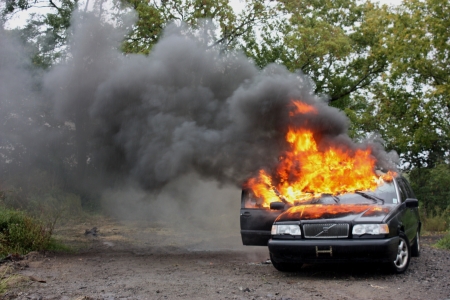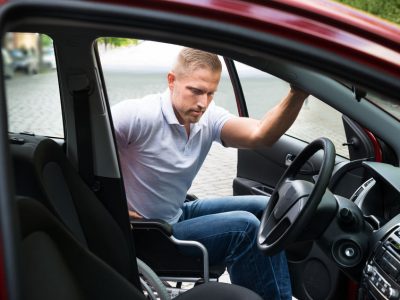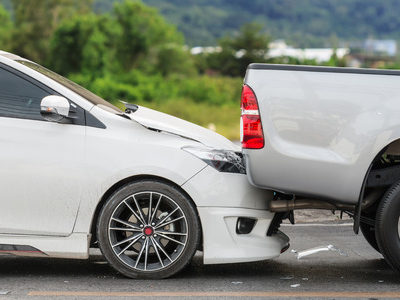

When a Car Accident Leads to Burn Injuries
It’s every driver’s worst nightmare to have their vehicle erupt in flames. Sadly, there are 171,500 highway fires in the United States each year, according to a report on highway vehicle fires conducted between 2014-2016. Of those fires, 83 percent happened in passenger vehicles, resulting in an average of 345 deaths annually, 1,300 injuries; and $1.1 billion in property loss. And this is good! Passenger vehicle fires were much more common before car manufacturers made design changes in the 1970s and 1980s. While most car accidents do not end in a fire, those that do can lead to severe burn injuries or even death.
People who suffer from a car accident that leads to burn injuries are likely facing considerable pain and suffering, medical bills, lost wages and quite possibly surgery or even disability. The best way to ensure that you receive fair compensation for your injuries is to hire a car accident attorney. The injury lawyer will assess your damages and the circumstances around the accident to determine the value of your claim and fight to get you the full compensation you deserve.
Why do cars catch fire in a car accident?
While most of today’s vehicles are designed to help prevent engine fires in the event of a car accident, it still happens far more than we would like. There are many reasons that a car can catch fire, including faulty wiring, damaged batteries and fluid leaks. Here are some of the main reasons that cars catch fire after a collision:
- When engine fluids leak and get too close to high temperatures as a result of a crash, a fire can ignite. A fuel system leak is particularly dangerous because gasoline is so corrosive and flammable but brake fluid, transmission fluid and power steering fluid can also ignite a fire.
- When vehicle owners fail to take care of broken car parts, faulty wiring or leaky seals, there is a much higher risk of fire in the event of a crash.
- If a vehicle’s electrical system fails, sparks may ignite a fire.
- Damaged electric and hybrid vehicle batteries that come into contact with leaking coolant can start a fire.
- If the engine becomes overheated and fluids spill out of their areas, the fluids can spread across the engine bay and ignite a fire.
- The catalytic converter is part of the exhaust system and if it overheats, it can damage the car parts around it and lead to a fire.
What should I do if my car catches fire after a car crash?
If you are involved in a car accident and see smoke or flames or smell burning plastic or rubber, it’s important to follow safety protocol created by fire safety organizations like the National Fire Protection Association to avoid a serious burn injury:
- Pull over into a safe location or put your vehicle in park with your hazard lights on if you are unable to pull over.
- Turn off the engine.
- Get out of and as far away from your vehicle as possible (at least 100 feet), assisting young or injured passengers as needed.
- Call 9-1-1.
Seek the help of a car accident attorney
If you or a loved one was injured because of the negligence of another, contact a personal injury lawyer to discuss your legal rights. Let an experienced car accident attorney fight for the full compensation that you deserve. It is not uncommon to receive a settlement from the insurance company that is five to ten times larger with the help of a lawyer. Call the personal injury lawyers at Tario & Associates, P.S. in Bellingham, WA today for a FREE consultation! We have been representing residents of Whatcom County, Skagit County, Island County and Snohomish County since 1979. You will pay nothing up front and no attorney fees at all unless we recover damages for you!




